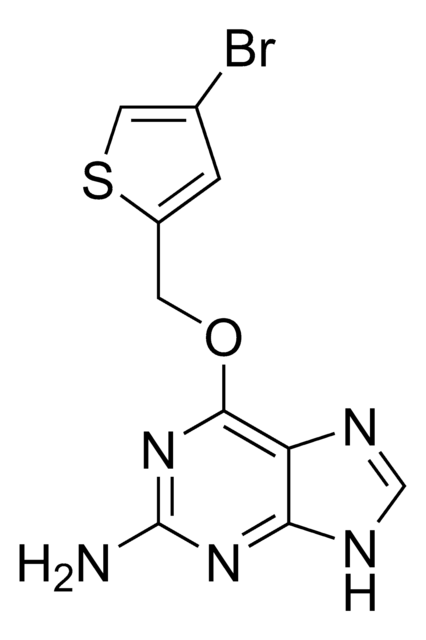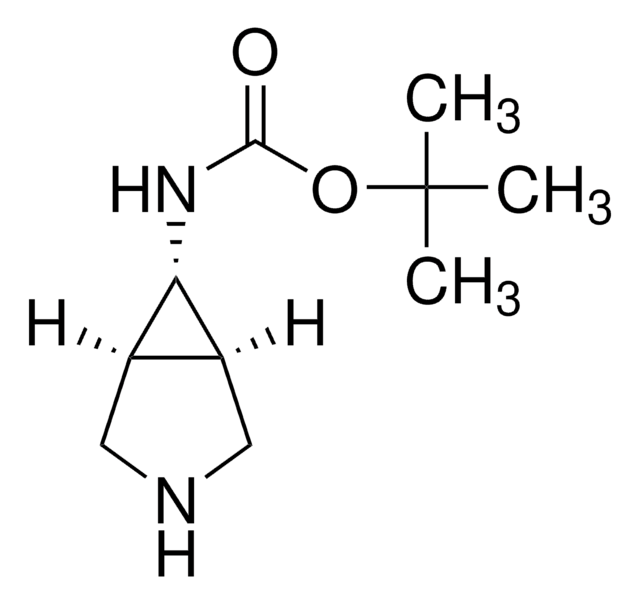SML1117
ML345
≥98% (HPLC)
Synonym(s):
5-Fluoro-2-[5-(morpholine-4-sulfonyl)-2-morpholin-4-yl-phenyl]-benzo[d]isothiazol-3-one, CID 57390068
About This Item
Recommended Products
Quality Level
Assay
≥98% (HPLC)
form
powder
color
white to beige
solubility
DMSO: 5 mg/mL, clear (warmed)
storage temp.
2-8°C
SMILES string
O=S(C1=CC(N(C2=O)SC3=C2C=C(F)C=C3)=C(N4CCOCC4)C=C1)(N5CCOCC5)=O
InChI
1S/C21H22FN3O5S2/c22-15-1-4-20-17(13-15)21(26)25(31-20)19-14-16(32(27,28)24-7-11-30-12-8-24)2-3-18(19)23-5-9-29-10-6-23/h1-4,13-14H,5-12H2
InChI key
FVKOFZKSMMIUTL-UHFFFAOYSA-N
Biochem/physiol Actions
Signal Word
Warning
Hazard Statements
Precautionary Statements
Hazard Classifications
Acute Tox. 4 Oral
Storage Class Code
11 - Combustible Solids
WGK
WGK 3
Flash Point(F)
Not applicable
Flash Point(C)
Not applicable
Certificates of Analysis (COA)
Search for Certificates of Analysis (COA) by entering the products Lot/Batch Number. Lot and Batch Numbers can be found on a product’s label following the words ‘Lot’ or ‘Batch’.
Already Own This Product?
Find documentation for the products that you have recently purchased in the Document Library.
Related Content
The Cravatt group develops innovative technologies to understand enzyme roles in disease, focusing on activity-based protein profiling.
The Cravatt group develops innovative technologies to understand enzyme roles in disease, focusing on activity-based protein profiling.
The Cravatt group develops innovative technologies to understand enzyme roles in disease, focusing on activity-based protein profiling.
The Cravatt group develops innovative technologies to understand enzyme roles in disease, focusing on activity-based protein profiling.
Our team of scientists has experience in all areas of research including Life Science, Material Science, Chemical Synthesis, Chromatography, Analytical and many others.
Contact Technical Service









